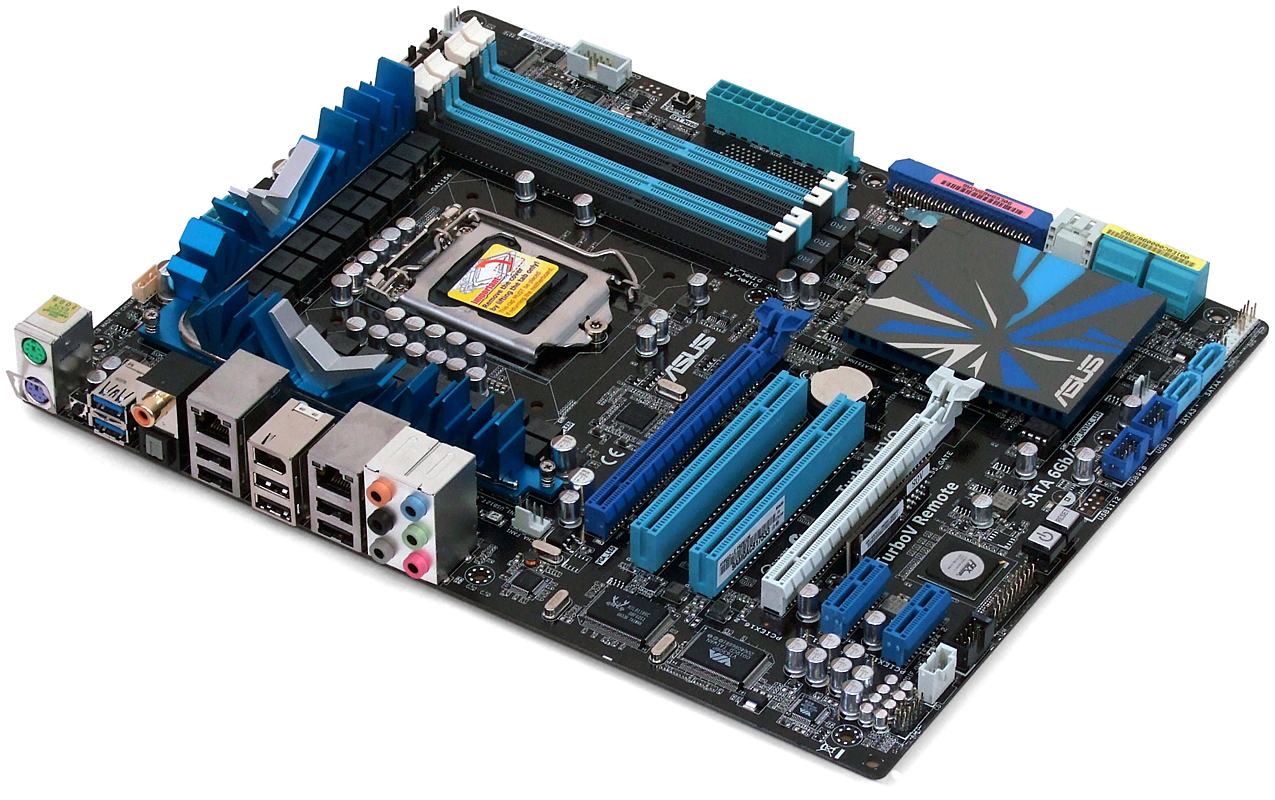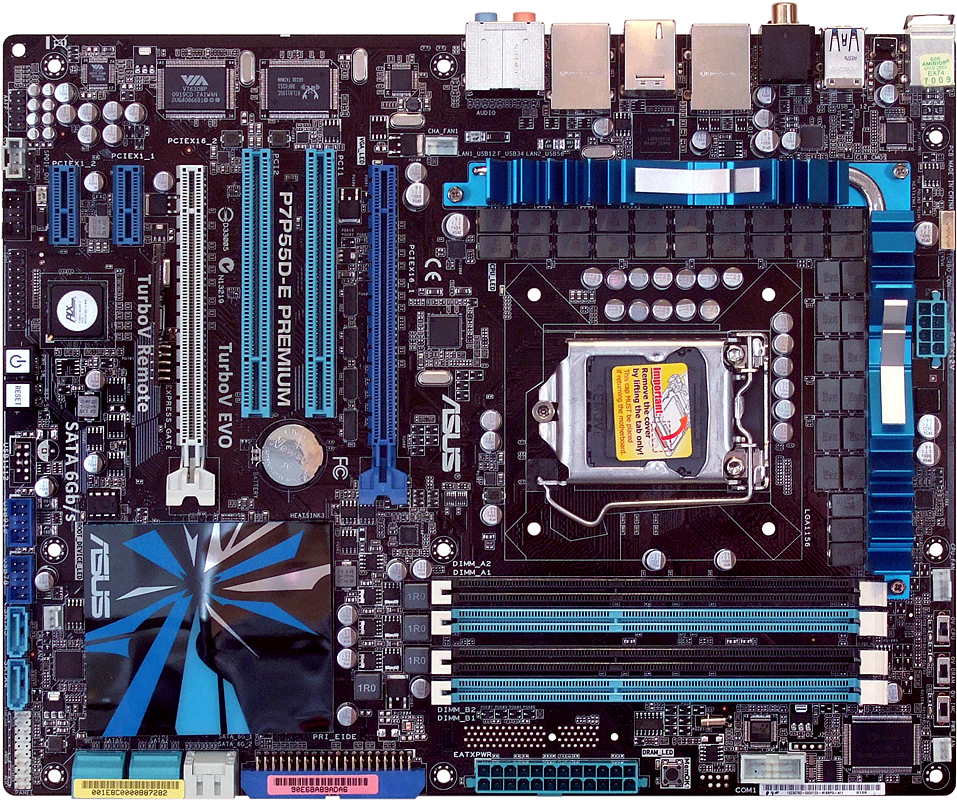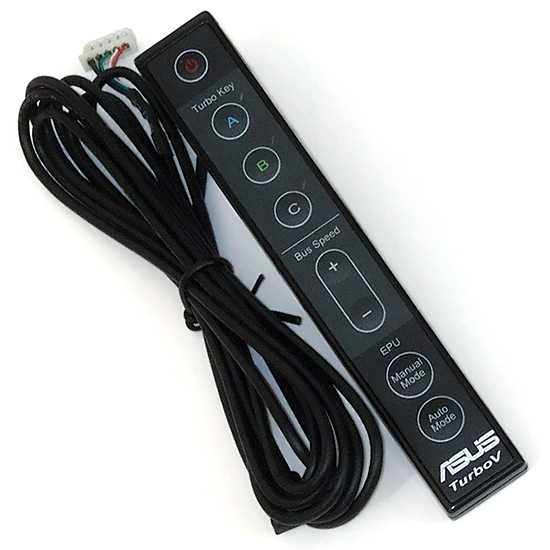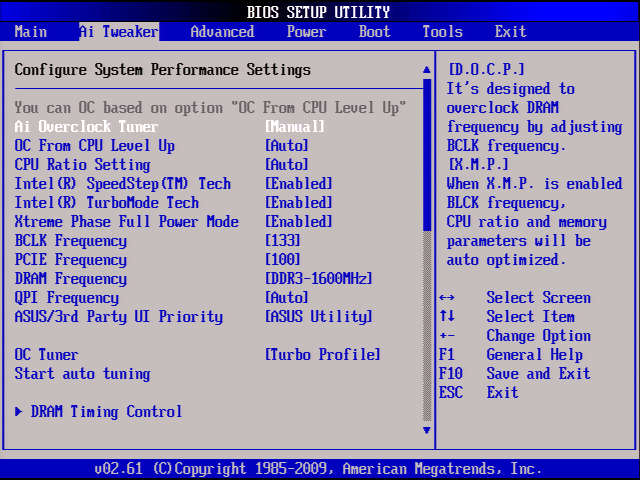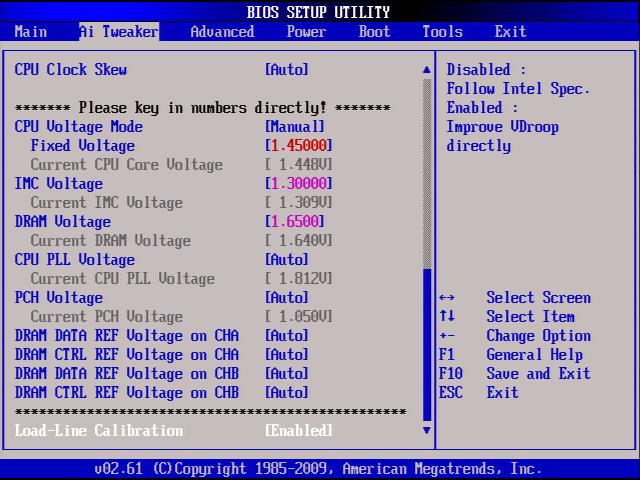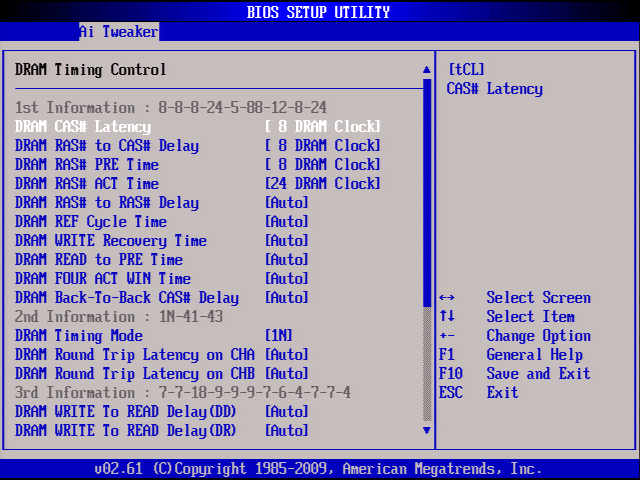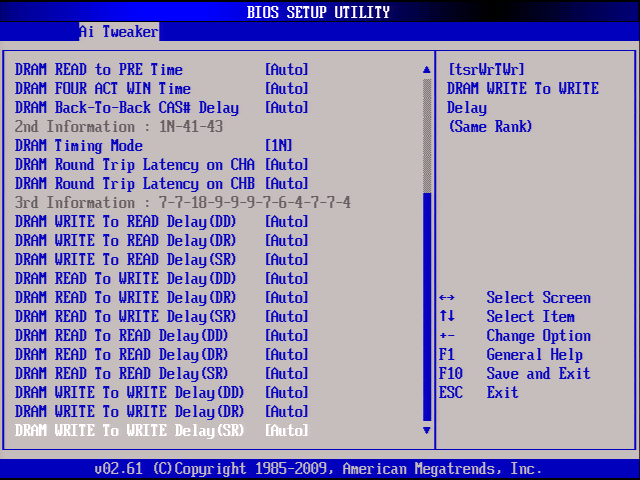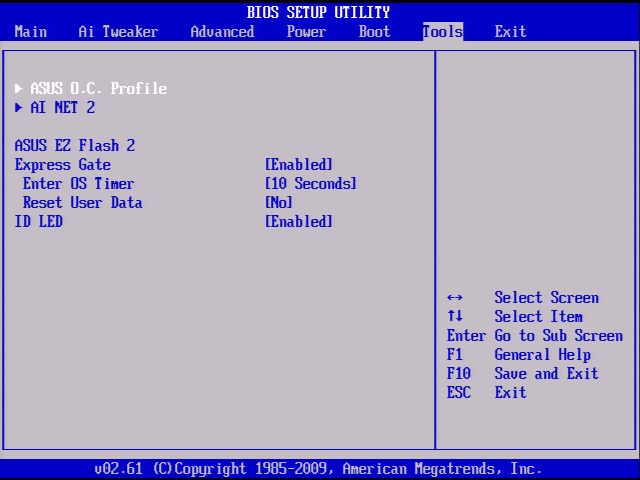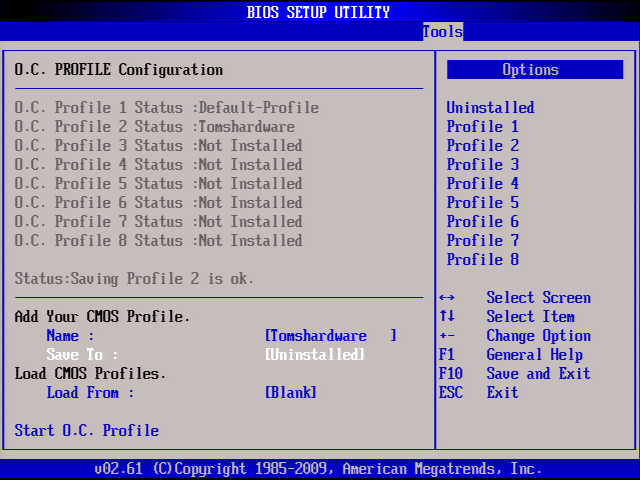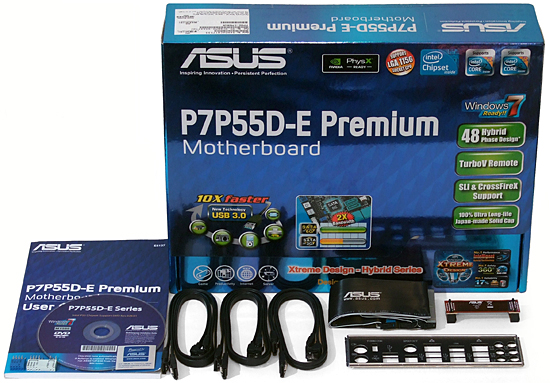Extreme P55: Four LGA 1156 Motherboards Over $250
With better efficiency and more aggressive Intel Turbo Boost binning, LGA 1156-based processors could be the right choice for some high-end machines. We look at a few premium motherboards that make these builds possible. Do they best Intel's X58 platform?
Asus P7P55D-E Premium
Less visually exciting, but with a broader appeal than its R.O.G. product line, is Asus’ Premium series, and the P7P55D-E Premium is no exception. Asus packs it with over twice the number of power regulator phases and several more connectors compared to its gaming motherboard, adding new features such as SATA 6.0 Gb/s and the USB 3.0 controller previously reviewed here.
Only one of the P7P55D-E Premium’s network interfaces is limited to PCI bandwidth, since the primary controller is a PCIe part. The chipset’s remaining seven PCIe lanes go to the motherboard’s two x1 slots, a JMB368 Ultra ATA controller, and the PLX PCIe bridge. The bridge is required to convert four 2.5 GT/s lanes to two 5 Gb/s links used by the USB 3.0 and SATA 6.0 Gb/s controllers.
As the first Premium series motherboard we’ve recently tested, the P7P55D-E Premium is also the first in recent months to include Asus’ Express Gate flash drive, as less expensive models now rely on a hard drive to store the included Splashtop OS. Boot times of as little as five seconds can quickly launch important applications such as a Web browser or Skype client.
The Express Gate flash drive consumes two USB ports, limiting the P7P55D-E Premium to two twin-port headers. Two rows of empty solder points remain where the third header is placed on the less-expensive P7P55D-E Deluxe.
With all eight of the P55’s PCIe lanes dedicated to devices and x1 slots, Asus had no room to add the x4 slot found on many competing products. The P7P55D-E Premium still includes two x16-length slots and a set of lane switches that allow these to share the processor’s 16 lanes in x8/x8 mode, which happens whenever the second slot is occupied.
Like most of Asus’ current products, a MemOK button next to the 24-pin power connector eases the use of improperly-programmed memory, slowing speed and/or timings to more easily allow the system to enter BIOS where such modules can be configured manually.
Our two major layout complaints focus on the P7P55D-E Premium’s bottom-rear corner, where both the front-panel audio and IEEE-1394 breakout connections are found. Most high-end cases now have these ports near the top front corner, making cable installation extremely difficult, if not impossible. Remaining cable headers are so conveniently placed that only these two problems stand out, although there is a surprising scarcity of fan connectors given the motherboard’s high-end market.
Get Tom's Hardware's best news and in-depth reviews, straight to your inbox.
Asus mixes up the SATA connectors, placing two of the chipset’s six ports along the P7P55D-E Premium’s bottom edge. Two SATA 6.0 Gb/s connections above the other four forward-facing ports are intended for internal drive use, and the mixed placement allows easier access to the chipset’s ports for an included single-port eSATA breakout plate. No eSATA is available through the I/O panel.
Overclockers won’t need access to a notebook computer to tune the P7P55D-E Premium externally, as Asus includes its TurboV Remote with this model. The big differences are more convenience and fewer features. It's up to the enthusiast to decide which is the more rewarding path to tuning his or her machine.
BIOS
Asus' Ai Tweaker menu contains both manual and automatic overclock settings, including CPU Level Up to approximate a faster processor’s settings and OC Tuner to automatically increase and stability test BCLK and RAM settings.
Asus adds Clock Skew and reference voltage controls to its enthusiast-level motherboards, and Load-Line Calibration reduces Intel’s designed-in core voltage fluctuation to improve overclocking stability.
The P7P55D-E Premium has a full list of DRAM timing controls to assist even the most aggressive performance seekers. The board also supports flashing from non-bootable media via its EZ Flash 2 interface.
Up to eight custom BIOS configurations can be saved as user profiles or exported to a drive.
Accessories
A relatively basic installation kit includes four SATA 3.0 Gb/s and two SATA 6.0 Gb/s cables, an Ultra ATA cable, and an SLI bridge. Included but not shown is a breakout plate featuring two USB 2.0 ports and a single eSATA port.
Current page: Asus P7P55D-E Premium
Prev Page Asus Maximus III Formula Next Page EVGA P55 Classified 200-
kumaiti I will comment the same as in the previous motherboard roundup: please add more details the CODECs on each board. There is almost nothing about the Via VT2020 and many crucial features of the ALC889 are vendor-dependant. It would be really good to know if they support Dolby Digital Live, DTS connect, Dolby Headphone and so on.Reply -
dcay "Already several years old, we have yet to build a system that can overcome Crysis’ system demands at 2560x1600 and 8x anti-aliasing (AA). That makes this outdated game a solid benchmark application."Reply -
dcay "Already several years old, we have yet to build a system that can overcome Crysis’ system demands at 2560x1600 and 8x anti-aliasing (AA). That makes this outdated game a solid benchmark application."Reply -
johnbilicki So socket 1156 is supposed to be the most awesome thing in the world?Reply
- No six core CPU's, EVER.
- Requires a glued on chip for more then 16 lanes.
- Motherboards overpriced compared to socket AM3.
When you buy a socket 1156 system that is all the performance you're going go get out of it. The top-end CPU's won't come down in price by much and Intel made it clear it's a mainstream platform. My socket AM3 has playable FPS, the motherboard is high end and under $200, and I'll be able to continue upgrading in the future. That is what matters to me. The Intel fan boy articles are getting so old. -
Crashman kumaitiI will comment the same as in the previous motherboard roundup: please add more details the CODECs on each board. There is almost nothing about the Via VT2020 and many crucial features of the ALC889 are vendor-dependant. It would be really good to know if they support Dolby Digital Live, DTS connect, Dolby Headphone and so on.Reply
They don't.
johnbilickiThe Intel fan boy articles are getting so old.
It might surprise you that new motherboard series articles follow new chipsets. So AMD fanboy, where's the new AMD chipset? -
kumaiti CrashmanThey don't.Reply
1. Do you mean on these boards or in general?
2. If it is for these boards, did you install the drivers/software from each manufaturer or used the default Windows drivers?
Thanks for the reply
-
Crashman kumaiti1. Do you mean on these boards or in general?2. If it is for these boards, did you install the drivers/software from each manufaturer or used the default Windows drivers?Thanks for the replyReply
None of the manufacturers list support for DDL or DTS Connect any longer. Those technologies were most likely licensed in the past and neglected due to lack of demand and cost, because typical buyers don't know what they are and won't pay extra for them. -
dman3k Sorry, I'm not an Intel fanboy, but AMD thoroughly sucks right now. Heck, even with their top of the line 5xxx series graphics, they still can't damn write a driver.Reply
It may well be Intel's monopolize actions that got AMD to this point when AMD had the top processors, but the truth is AMD products suck right now.
There are P55 mobos under $160 that you can easily find, which will still beat AM3 systems quite handily. For example, get a DFI Lanparty P55-T36. johnbilickiMy socket AM3 has playable FPS, the motherboard is high end and under $200, and I'll be able to continue upgrading in the future. That is what matters to me. The Intel fan boy articles are getting so old. -
Crashman dman3kSorry, I'm not an Intel fanboy, but AMD thoroughly sucks right now...There are P55 mobos under $160 that you can easily find, which will still beat AM3 systems quite handily. For example, get a DFI Lanparty P55-T36.Reply
First of all, most reviewers are begging AMD to pull a rabbit out of the hat just to get the competition moving again. Second, AMD does give you more chipset for your money.
